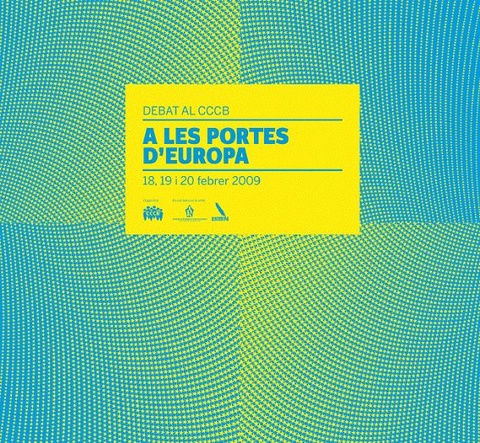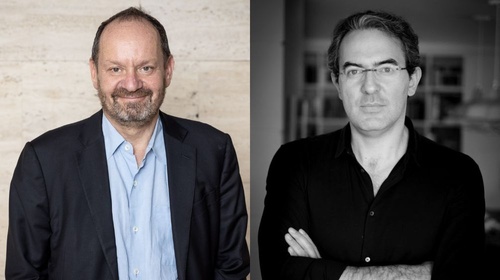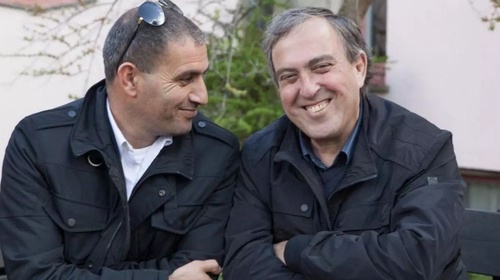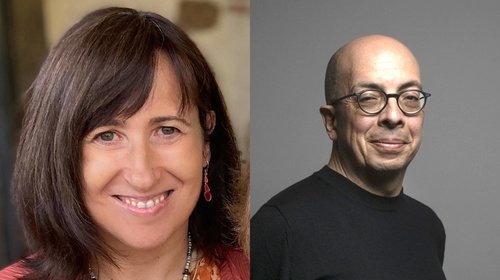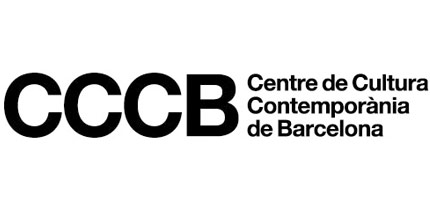At the Gateway to Europe
Debate
Free
Several countries, such as the Western Balkan States, Ukraine, Georgia, Turkey and Morocco are situated at the gates of the EU. However, their desire for integration is confronted with a number of obstacles that are political, economic, and cultural by nature, and even with certain prejudices of the member states. This process takes shape differently in each state and yet there is a common denominator: the political will for membership and the hopes and expectations this creates among the citizens.
Within the framework of its cooperation with the Institute of Dialogue and Communication of Tirana (Albania) and the Albanian Media Institute, the CCCB aims to inquire more deeply into the debate on Europe, analysing the specific set of problems faced by each of these countries, while also reflecting on the limits of Europe and "Europeanness" itself.
Wednesday, 18 February
7.30 p.m.
Welcome and introduction by: Piro Misha, director of the Institute of Dialogue and Communication of Tirana, Josep Ramoneda, director of the CCCB and Bashkim Shehu, Albanian-born writer.
Opening lecture by Mikheil Saakashvili, president of Georgia.
Thursday 19 February
5.30 p.m.
THE WESTERN BALKANS
Speakers:
Dubravka Stojanovic, Serbian historian, lecturer in Contemporary History at the University of Belgrade.
Remzi Lani, Albanian political analyst, director of the Albanian media Institute.
Carlos Taibo, lecturer in Political Science at the Autonomous University of Madrid and author of Las transiciones en la Europa central y oriental (The Transitions in Central and Eastern Europe, Catarata, Madrid, 1998) and La desintegración de Yugoslavia (The Disintegration of Yugoslavia, Catarata, Madrid, 2000), inter alia.
7 p.m.
UKRAINE AND GEORGIA
Speakers:
Kataryna Wolczuk, senior lecturer in Eastern European Politics and deputy director of the Centre for Russian and East European Studies at the University of Birmingham.
Gia Tarkhan-Mouravi, journalist from Georgia and co-director of the Tbilisi Institute for Policy Studies.
Carmen Claudín, deputy director of the CIDOB Foundation, previously director of the programme of studies on the former Soviet Union and Central and Eastern Europe.
Friday 20 February
5.30 p.m.
TURKEY
Speakers:
Cengiz Çandar, Turkish journalist and political analyst, adviser to the former president Turgut Ozal .
Gerald Knaus, Austrian political analyst, president of the European Stability Initiative, an independent, multinational and multidisciplinary institute concerned with the analysis of South Eastern Europe.
Carmen Rodriguez, researcher in Contemporary Turkish Studies at the Autonomous University of Madrid and author of the book Turquía. La apuesta por Europa, (Turkey. The Bid for Europe, Madrid, La Catarata, 2007).
7 p.m.
MOROCCO
Speakers:
Paul Scheffer, journalist and professor of Urban Sociology at the University of Amsterdam.
Nouzha Guessous Idrissi, founder of the Moroccan Organisation for Human Rights, medical biologist and former president of the UNESCO International Bioethics Committee.
Bernabé López, professor of Contemporary History at the Autonomous University of Madrid, author of the books Marruecos y España. Una historia contra toda lógica, (Morocco and Spain. A History Flying in the Face of Logic, RD Editores-Historia, Sevilla, 2007) and Marruecos en trance. Nuevo Rey, nuevo siglo, ¿nuevo Régimen? (Morocco in a Spot. New King, New Century: New Regime?, Biblioteca Nueva-Política Exterior, Madrid 2000).
